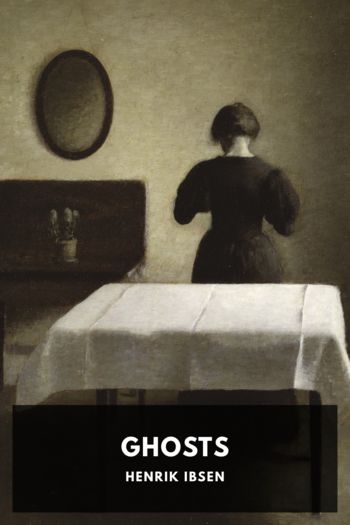Murderous, David Hickson [most read book in the world .TXT] 📗

- Author: David Hickson
Book online «Murderous, David Hickson [most read book in the world .TXT] 📗». Author David Hickson
“Are you saying there is deliberate killing?” I asked. “Land-owner genocide?”
“I wouldn’t go that far. There is killing, yes. Many land-owners have died and many more will die. But what does deliberate mean? When there’s an imbalance, things are bound to get nasty. And when eight percent of the population own ninety percent of the land, that’s a severe imbalance.”
“It sounds as if you are going to start defending the land grabs,” said the colonel. “Are they part of a natural process of correcting the imbalance?”
“Not defending, colonel. Explaining. It is clear to see why it is happening, but that doesn’t make it justifiable. And depending on your viewpoint, you would call it different things. Land grabs, expropriation, redressing the imbalance.”
“Just because you call it something else doesn’t change what it is.”
“Absolutely not,” said Piet. “I suggest that history is nothing but our interpretation of events by means of the labels we apply to them. The problem today is that we tend to stick the labels on before we grasp what really happened. The labels are flung about and they distort our perception of what is happening around us. Think of when someone dies. You have the choice of several labels: it was murder, accident, manslaughter, assassination, killed in the line of duty, executed as just punishment, unjust punishment, criminally executed, the list goes on and on.”
“And so the church massacre will go into the history books as the tragic act of a lone madman?”
“You see if I’m proved wrong.”
“Pa is never wrong,” said Hendrik.
Piet smiled as if to announce the end of act one, and we put our heads down to focus on the food.
“Think of the Battle of Blood River.” Piet suggested as the servants cleared our plates. “You know the story, colonel?”
“Only the bare details,” admitted the colonel. “A handful of Afrikaners fought against thousands of Zulus and killed so many of them that the river ran red with their blood.”
“That’s the one. Almost two hundred years ago. A little under five hundred Afrikaners, the Voortrekkers: front runners, pioneers trekking north in search of better lives and fertile land.”
“And to get away from the British,” I said, “who were imposing their rule in the Cape.”
“Indeed.” Piet considered his two British guests, as if wondering whether to pursue the well-worn track of the conflict between our cultures, but decided instead to press on with his story. “Those five hundred Afrikaners were attacked by ten to fifteen thousand Zulu warriors. Imagine that! Being outnumbered thirty to one; guns and some small cannons for the Afrikaners, nothing but spears and knives for the Zulus. Three thousand Zulus died that day.” A pause for effect. “Not a single Afrikaner.”
“We made a vow,” said Melissa, who was making good progress on her fifth glass of wine and had spent much of the conversation gazing into her glass. It was something of a surprise that she was keeping up.
“We did,” said Piet. “You tell me, colonel, as a military man – the Battle of Blood River … was it an extraordinary military victory or a cruel and pointless massacre of unarmed Zulu tribesmen?”
“We would need to understand more about it,” said the colonel. “Superficially, I would guess it could be portrayed as both.”
“Which is exactly my point. You need to know more. And each layer of the onion changes your perspective.” Piet took a deep draught of wine. “We’ll never get to the truth of this church business.”
“How would you describe the Battle of Blood River?” asked the colonel.
“Well … we start with the fact that the Zulus were attacking, and the Afrikaners were defending themselves. Bully for the Afrikaners. They survived an attack in which they were greatly outnumbered. Well done to them. But then we ask, why were the Zulus attacking them? And it turns out that the Afrikaners were travelling towards the heart of the Zulu nation. They were planning to attack the big chief Dingaan at umGungundlovu. Attack and eliminate.”
“umGungundlovu was Dingaan’s royal residence,” said Roelof.
“It was,” agreed Piet. “A huge kraal, a tribal settlement that was the beating heart of the Zulu nation. The Zulu tribe is a mix of monarchy and military dictatorship. But my point is: knowing that the Afrikaners were intending to assassinate the Zulu king, how do you feel about that?”
“Not so bully for the Afrikaners,” said the colonel.
“Exactly. Our perspective shifts again. Naughty Afrikaners … Their malicious intent puts them on the side of wrong. And we understand why the Zulu warriors attacked. Our sympathies are with them.” Piet sat back and fanned himself with a folded napkin. The combination of the rich food, the wine, the fire, and his passion for the history of the country were causing him to run hot.
“But there’s more?” I asked.
“There’s always more, Mr Moss. Because to be fair, we have to ask why the Afrikaners were attacking Dingaan.”
“Why were they?” I asked, to be fair.
“Ten months earlier, Dingaan had signed a treaty between the two groups: the Zulu and the Afrikaners. A treaty that was to pave the way for peaceful sharing of the land, involving an exchange of cattle for land. Cattle was the only currency we shared, one of the few things of value to both cultures.”
“So this story goes back to the ownership of land?”
Piet nodded and drank. “Like every other story on this continent. It’s all about the land.” He gave the satisfied smile of a man who owned a good deal of it. “Two days after signing the treaty with Dingaan, he invited the Voortrekker leader Retief and his companions to umGungundlovu for a beer-drinking celebration of the treaty and a farewell before Retief returned with the signed treaty to his people.”
“Which he didn’t get to do,” said Roelof.
“He did not,” agreed Piet. “Things turned nasty at the celebration. Retief and all his men were brutally slain. Over the next few days Zulu





Comments (0)